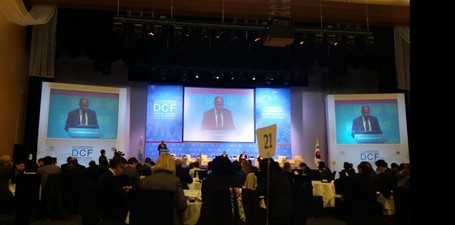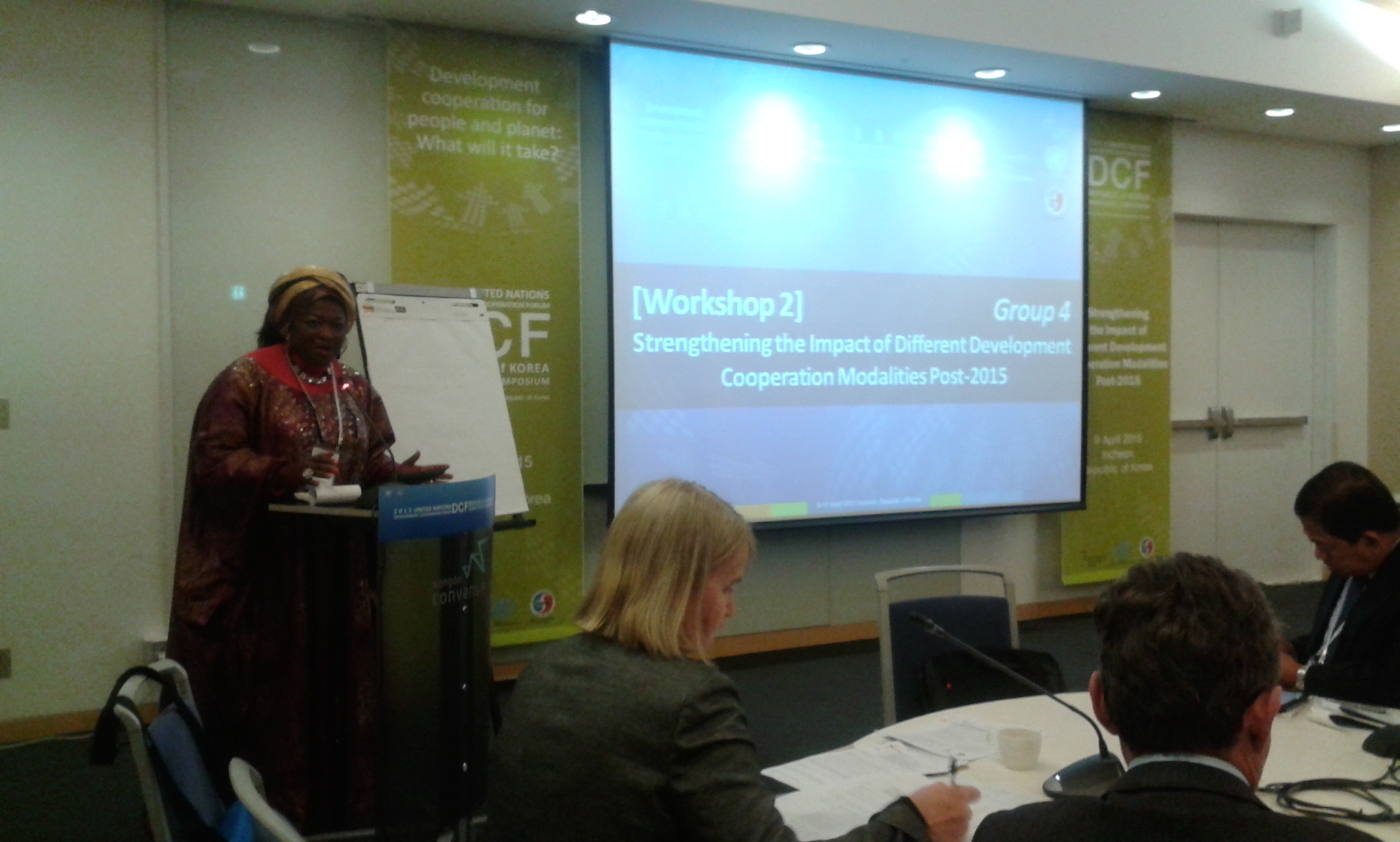
The first High-Level Symposium of the United Nations Development Cooperation Forum (UN DCF) brought together 200 high-level representatives in Incheon, Republic of Korea, from 8 to 10 April, to advance discussions on how development cooperation can support the implementation of the Post-2015 Development Agenda. Ms. Celestine Ketcha, Mayor of Bagangté, Cameroon, and UCLG’s Development Cooperation Champion and Secretary General promoted the views of local and regional governments in the Symposium.
Organized by the United Nations Department of Economic and Social Affairs and the Republic of Korea, the Symposium serves as the major global multistakeholder policy forum on development cooperation, concentrating in particular on how the new development agenda will need to influence development cooperation policies and mechanisms. Discussions focused on means of implementation (not only financial), South-South cooperation and links with the proposed Sustainable Development Goals and the Financing for Development Conference scheduled to take place in July 2015.
The new development agenda expects to have a specific Goal on a new Global Partnership (Goal 17). Representing the voice of local authorities during the Symposium, the Mayor of Bagangté, Cameroon, and Champion on Development Cooperation and Local Governments, Ms. Celestine Ketcha, advocated for the role of the local level in the new agenda, stressing that it will need to consider local and regional governments in a much more significant manner:
The SDGs need to have a strong governance perspective and increase public participation in political processes, and local governments should be involved directly in all stages of the development processes”.
“As the order of government closest to people, local governments have an acute awareness of the challenges faced by their population. As we discuss here development cooperation for people and the planet, we have a special role to play, ensuring a governance of proximity that no other public authority can deliver”, noted Ms. Ketcha.
Mr. Josep Roig, UCLG Secretary General, highlighted that the interdependence of issues requires the involvement of all levels, including the local level. “The principle of subsidiarity must remain a core principal of action”, he said.

The advantages of decentralized cooperation are essential to the new development cooperation agenda.
Demand driven peer-to-peer cooperation between local governments from the North and South, as well as South-South cooperation, have shown to have a positive impact on effectiveness and accountability, but also the planning and delivery of public services, contributing to poverty alienation”, emphasized Ms. Ketcha.
As regards accountability of development cooperation, UCLG emphasized the need for real mutual accountability at all levels, including the local level. “The current development architecture is not complete”, reported UCLG Champion Ketcha. “To reach out to people, especially the poorest, it is crucial to reach out as local authorities and not only through country-level means of implementation and national Official Development Assistance.”
The efforts of UCLG Working Group on Capacity and Institution Building to develop city‑to‑city and association-to-association cooperation as key mechanisms for development were recalled, as well the work done by the UCLG’s Development Cooperation Champion and the policy paper of the Committee on Development Cooperation and City Diplomacy.
The conclusions of the Symposium will serve as the first basis for the United Nations Development Cooperation Forum to be organized in July 2016. It will lead to recommendations that will feed the preparations for the Post-2015 Development Agenda and the Third International Conference on Financing for Development.
For more info:
- Read UCLG policy Paper on Development Cooperation
- Visit UCLG pages related to Peer Learning and Development Cooperation.
- Follow the discussions with the hashtag #UNDCF
Related News:










